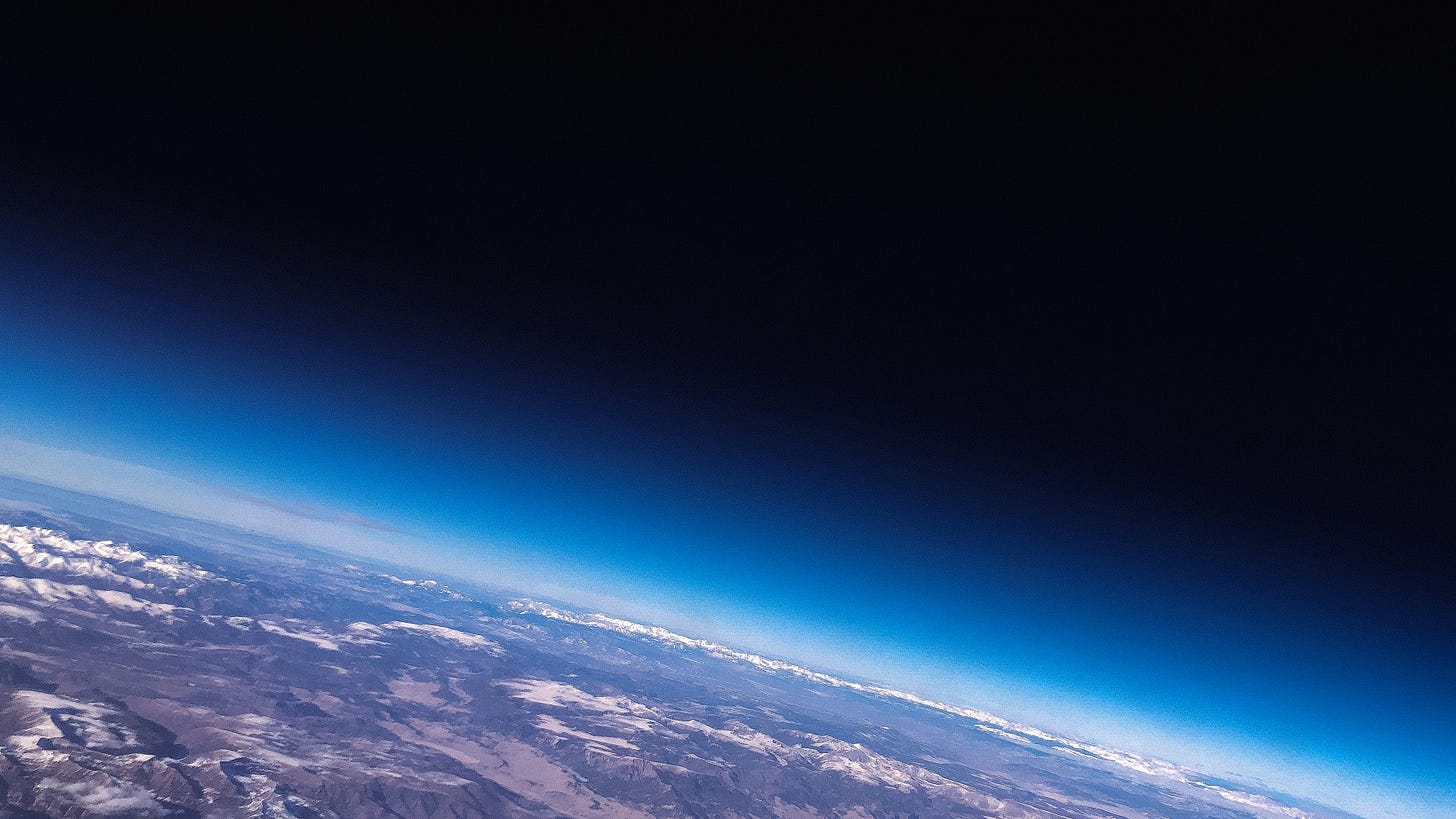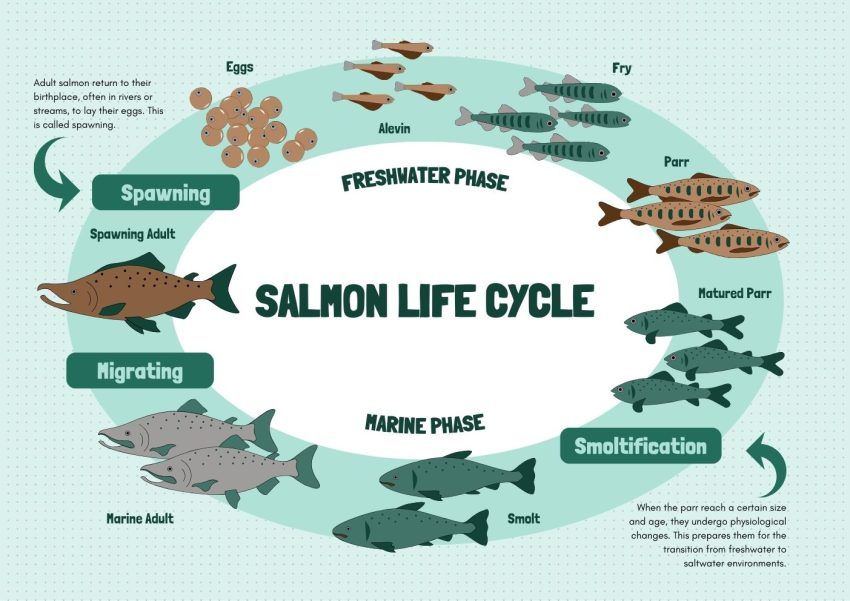Does the Arc of the Moral Universe really Bend Toward Justice?
Reflections on humanity and our future
Listen to me read the post…
I can’t get this question out of my mind. I woke up multiple times last night and each time, the question poked its way into the front of my mind. “Does the long arc of the moral universe really bend toward justice, or are we delusional to hope that it will?” (With credit to Martin Luther King for the original quote.)
To put it more succinctly, “Is there hope for humanity?”
Today it feels like the world is burning and we keep letting the world’s richest and most powerful men cut down trees to add to the fire. The people being appointed into powerful positions by the president-elect in the U.S. don’t garner a lot of hope about the “arc of the moral universe”. The new head of the Environmental Protection Agency, for example, is more focused on deregulation that will “restore US energy dominance and revitalize the auto industry” than he is on protecting the environment. (And that’s just environmental justice – much more could be said about the choices being made related to other forms of justice.)
While I don’t believe that all social change is in the hands of the leaders of one country, a lot of damage can be done in four years. I try not to be alarmist, but I worry that decisions made as a result of this election (and a global trend toward right-leaning populism) may speed our descent into climate collapse. We may not have time for the long arc to bend in another direction (or, as Joanna Macy calls it, The Great Turning).
Last month I wrote a post about how I’m shifting my language from “personal development” to “human development”. What’s in the fine print of that post is this... I believe in the human capacity to evolve. I believe that we, like other species on the planet, have the capacity to adapt in response to habitat and environmental change.
I stand by that belief, BUT... are we ACTUALLY evolving? Are we tapping into our innate capacity for adaption, especially in the face of climate change? Or are we endlessly recycling the same greed, pettiness, narcissism, short-sighted decision making, belief in human exceptionalism, and a systemic separateness from other species on this planet that brought us here in the first place (the Industrial Growth Society that Joanna Macy talks about)? Some days, it’s hard to find evidence of any meaningful evolution – at least not the kind of evolution that will correct the harm our species has caused.
Recently I saw a meme with the following quote over a photo of Elon Musk: “If a monkey hoarded more bananas than it could eat, while most of the other monkeys starved, scientists would study that monkey to figure out what the heck was wrong with it. When humans do it, we put them on the cover of Forbes.” (quote by Nathalie Robin Justice, as far as I can tell)
When we look to the natural world, we don’t see any other species that systematically destroys their own habitat, wipes out other species, or builds a system that rewards hoarding and unsustainable growth. These are behaviours exhibited only by the human species. And we, the human species, seem intent on protecting our right to continue these behaviours despite increasing evidence that they contribute to the destruction of the ecosystems we’re part of and even our own species.
Systems like capitalism are built on a misguided understanding of the evolutionary principle of “survival of the fittest”. We’ve been conditioned to think of fitness as “strength, power, dominance, superiority, wealth, and intelligence”, but in terms of species survival, the fitness that is more important is the ability to adapt and evolve in ways that allow a species to access food, survive predators, and reproduce. We wouldn’t consider a tiny wildflower to be “strong”, but it has adapted in a way that attracts birds and bees and allows it to reproduce.
Years ago, I heard a speaker debunking the popular understanding of “survival of the fittest” and she talked about two species of birds which feed on the same type of cactus in the desert. Competition for limited food sources might have seen one species dominate and wipe out another, but instead, one species adapted a longer beak so that they could reach further into the cactus and allow both species adequate access to their shared food source. In other words, evolution supported the survival of multiple species rather than the eradication of one. (Can we extrapolate from that to imagine alternatives to capitalism and our government systems that reward cooperation rather than competition?)
Last weekend, I visited a stream near my home to watch the seasonal spawning of salmon. Since moving to Vancouver Island, I’ve become slightly obsessed with the life cycle of salmon – so much so that I spent a recent Sunday participating in a human chain scooping salmon from the place where a nearby stream meets the ocean to move them to spawning grounds above a series of waterfalls. (You can see my video of that here.)
In the Spring, salmon hatch all over this region, and then they begin their long migration from the fresh water of their home stream to the salt water of the ocean. They spend anywhere from one to seven years in the ocean, and then, in Fall, migrate back, sometimes thousands of kilometres, to the very stream where they were born (possibly guided by smell, chemical cues, and the stars). Once they’re back in the stream, female salmon build nests and lay their eggs in the gravel, wait for male salmon to fertilize those eggs, and then cover the eggs to protect them until Spring. Within two weeks of entering their home stream, adult salmon die, and their bodies provide food for birds and bears, while the carcasses help to nourish the trees and fungi of the forest.
After watching hundreds of salmon in the stream last weekend, I couldn’t help but wonder what it might be like if salmon tried to build a system that was antithetical to the survival of their species. What if they refused to complete the cycle and instead chose to stay in the stream or in the ocean – wherever they could hoard the most resources? What if some of the salmon colonized the streams and built borders and barricades to protect the spawning grounds from other salmon species or those arriving after them? What if they refused to offer up their bodies as resources for the forest?
It seems a ridiculous thing to consider, and yet when humans do similar things, we elevate them into powerful government positions.
At this point, I don’t know if there’s sufficient time for our human species to course correct (and return to our metaphorical streams, like salmon), or if we’ll simply wipe ourselves off the planet and leave other species to adapt to whatever remains. Perhaps, in fact, the long arc of the moral universe is an inter-species arc that extends far beyond human life on this planet. Perhaps the bend toward justice will be experienced by non-human species after us.
While researching the quote that started this article, I discovered that MLK paraphrased it from a longer, more nuanced quote by the abolitionist minister Theodore Parker. In a sermon, Parker said: “I do not pretend to understand the moral universe. The arc is a long one. My eye reaches but little ways. I cannot calculate the curve and complete the figure by experience of sight. I can divine it by conscience. And from what I see I am sure it bends toward justice.”
In this longer quote, justice seems less inevitable or reliable. It may be that there’s a bend in the arc, but it’s beyond what our eyes can see.
Is there still hope for humanity? Or even hope for justice? I don’t know. Maybe? Or maybe not. It’s beyond what my eyes can see.
Years ago, I participated in a 5-day leadership intensive with Meg Wheatley and she was contemplating whether it might actually be wisest to let go of hope and instead, just keep doing whatever is best to be doing in the place where we can do it. In some of the writing she’s done on the topic, she shared the following Vaclav Havel quote: “Hope is not the conviction that something will turn out well, but the certainty that something makes sense regardless of how it turns out.”
Wheatley suggests that we can hold space for our hopelessness within community, and that’s one of the things that carries me forward as well. “We are consoled and strengthened by being hopeless together. We don’t need specific outcomes. We need each other.”
I don’t know how things will turn out, and I don’t know whether humanity will evolve in time, but I’m going to keep doing whatever makes the most sense for me to do, right here within my small circle of influence. I’ll do it in relationship with my community – a community that includes the salmon, the trees, and the mycelium under the forest. I will, for example, keep moving salmon to their spawning grounds, as long as “it’s evident they need our help.”
Even if humanity doesn’t evolve, I know that a return to our most human nature, in relationship with other species, plus an evolution into what’s needed next, is possible within the small circles I am in. Years after being in conversation with Meg Wheatley, I’m not sure I see the value of letting go of hope entirely, but I’ll find places closer to home where that hope can be rooted.
p.s. Speaking of hope… as I was finishing this post, I was also reading Robin Wall Kimmerer’s beautiful new book, The Serviceberry: Abundance and Reciprocity in the Natural World. In future posts, I intend to write more about “hope in hopeless times” (as I did in my earlier post about Holding Space for The Great Turning) and what I’m learning about humanity’s place in the natural world from teachers like Robin Wall Kimmerer, Bill Plotkin, Joanna Macy, Suzanne Simard, Merlin Sheldrake, Bayo Akomolafe, Peter Wohlleben, and more.







Very well said. These are just the things I've been thinking about right now too. Thanks for sharing this!
I agree with saving Mother Earth and eliminating the laser burnings of trees such as: Smokey Mtns, massive areas of USA along the Western Coastlines, Australia and Maui-not conclusively; as well as giving lands such as Yellowstone and San Diego to foreign monster country!
I weep, pray, believe in the long Arc of Universal Law of Source-God.
There is greed everywhere and of the biggest is the pharmaceutical Industry that has peoples in hostage through tampering peoples under societal duress with sexual manipulations that will certsinly promote species distinction as well as the horrid False-Safety of Covid Immunity!
I am totally against all natural and humsnity abuses and wars that are to wipe out populations for minerals and natural resources. No, I am against mass extermination of mother nature. I am against the mass extermination of humanity through the genocidal Covid serums that are to main- kill -and destroy . I am against : harassing, lying to all, firing first-responders, para-professionals and any corporations and businesses too for give pink notices and ruin peoples reputations of blue/white collar-workers , forcing vaccinations on kind ones of all races and in all countries!
This includes the policing medical activities whom have greed-powered the non-scientific lying Covid-jabs , criminally-tainted PSR testings; thus sabotaging innocent new-borns, children , youth, adults and the tender elderly .
Alberta Canada is a horrible example and Alexander Makis MD channel on Stack will exhibit this case dramatically.